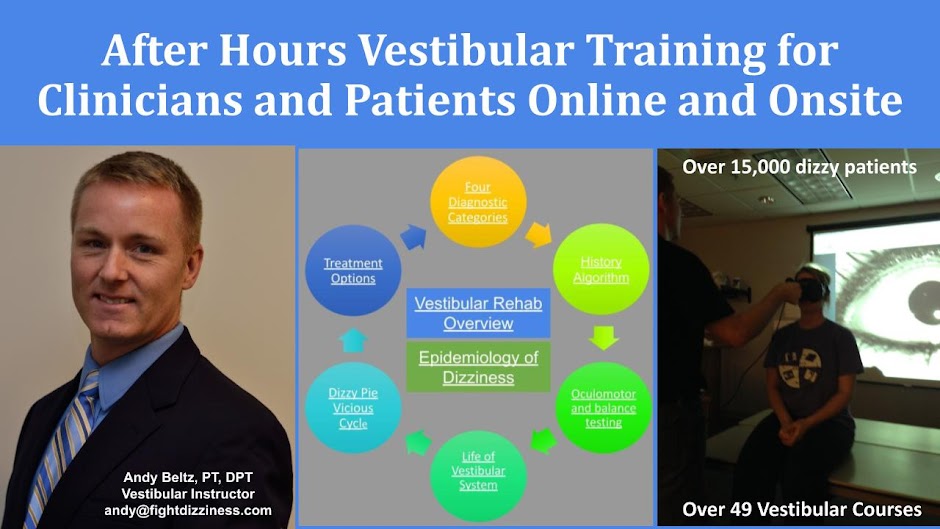I believe that it is possible to predict which clients are likely to benefit and which clients are not likely to benefit from repositioning within the first visit. There are a variety of factors I have found that may help to make this prediction. Here is one:
- How long has the BPPV been truly* present? If the BPPV has not ever gone away (been around for months or years) and the client is an active individual and has been moving normal- no avoidance, then it is odd that the individual has not repositioned the otoconia/calcium crystals/rocks on their own by accident. At this point, I sometimes suspect that either the individual has vestibular atelectasis or there is some other problem blocking return of the otoconia back into the vestibule. In addition, it may be that the individual is self repositioning, but that something is causing more otoconia to fall out regularly (from some location in the vestibule).
- I have found repositioning maneuvers to be helpful for these individuals at times.
- Sometimes, these individuals need greater variants of repositioning maneuvers and post-maneuver restrictions.
- These clients usually have much more challenging cases.
*This predictive factor is only helpful if the client's BPPV has truly not ever gone away on it's own. Many insist their BPPV has never gone away when it has. The problem just returns within months. Because clients experience BPPV that returns, even though it goes away for a period of time, many will say it has not gone away.
